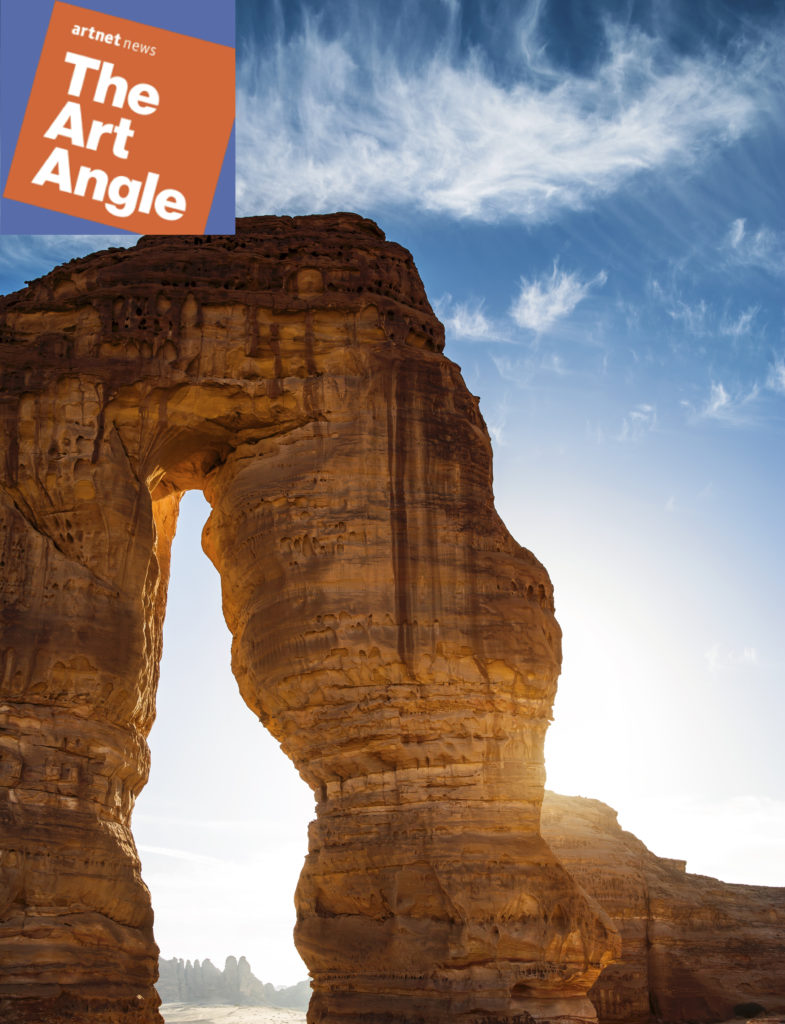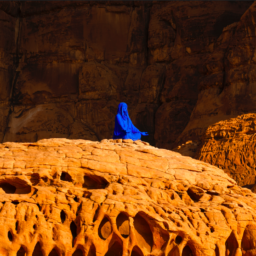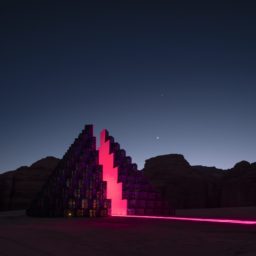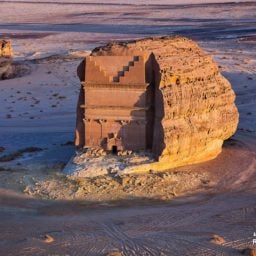The Art Angle
The Art Angle Podcast: What Is Saudi Arabia Trying to Do With Contemporary Art?
On this week's episode, journalist Rebecca Anne Proctor on how Desert X is part of Saudi Arabia's new play for a contemporary way of life.

Welcome to the Art Angle, a podcast from Artnet News that delves into the places where the art world meets the real world, bringing each week’s biggest story down to earth. Join host Andrew Goldstein every week for an in-depth look at what matters most in museums, the art market, and much more with input from our own writers and editors as well as artists, curators, and other top experts in the field.
Some 16 months after the brutal murder of Washington Post journalist and Saudi dissident Jamal Khashoggi at the hands of state agents, the organization behind the namesake Southern California biennial Desert X announced that it would put on an ambitious new exhibition of contemporary art in AlUla, a UNESCO World Heritage Site deep in the Medina region of Saudi Arabia. Word of the show (which debuted this February) incited a firestorm of criticism from international art-world figures, including three of Desert X’s own advisors—artist Ed Ruscha, art historian and curator Yael Lipschutz, and philanthropist Tristan Milanovich—all of whom resigned in protest.
Mohammad Bin Salman, the crown prince of Saudi Arabia, has simultaneously denied ordering Khashoggi’s slaying and publicly taken responsibility for it because the act “happened on [his] watch.” The dissonance between those concepts parallels the dissonance playing out on a national level under his rule.
On one hand, MBS (as Bin Salman is popularly known) has launched major social reforms, including curtailing the authority of the religious police and permitting women to drive, as well as continuing to pump vast government resources into new cultural initiatives such as Desert X AlUla—all with the aim of diversifying the oil-dependent Saudi economy and improving the country’s dubious reputation with more progressive world leaders. On the other hand, MBS has also made several troubling moves to consolidate power in recent years, including arresting prominent opposition clerics and imprisoning more than 200 businessman, princes, and other officials in Riyadh’s Ritz-Carlton hotel for weeks under the guise of an anti-corruption crackdown.
So how exactly does Desert X in particular, and art in general, fit into this high-stakes geopolitical puzzle? Is the burgeoning Saudi contemporary art scene little more than a propaganda weapon wielded by MBS? Can the kingdom’s homegrown artists and projects ever be evaluated on their creative merits once they accept funding or other support from the crown? And if so, where can those lines be drawn?
On this week’s episode of the Art Angle, journalist Rebecca Anne Proctor called in just days after returning from her visit to Desert X AlUla to discuss the controversial show, the backlash it inspired, and what Western critics could learn from speaking with the artists involved themselves.
Listen below and subscribe to the Art Angle on Apple Podcasts, Spotify, SoundCloud, or wherever you get your podcasts. (Or catch up on past episodes here on Artnet News.)
Listen to Other Episodes:
Follow artnet News on Facebook:
Want to stay ahead of the art world? Subscribe to our newsletter to get the breaking news, eye-opening interviews, and incisive critical takes that drive the conversation forward.

It looks like you're using an ad blocker, which may make our news articles disappear from your browser.
artnet News relies on advertising revenue, so please disable your ad blocker or whitelist our site.
To do so, simply click the Ad Block icon, usually located on the upper-right corner of your browser. Follow the prompts from there.
SHARE




No comments:
Post a Comment